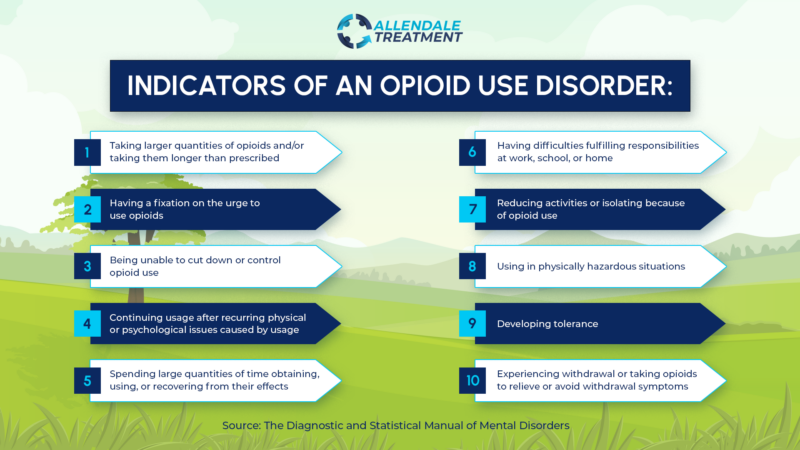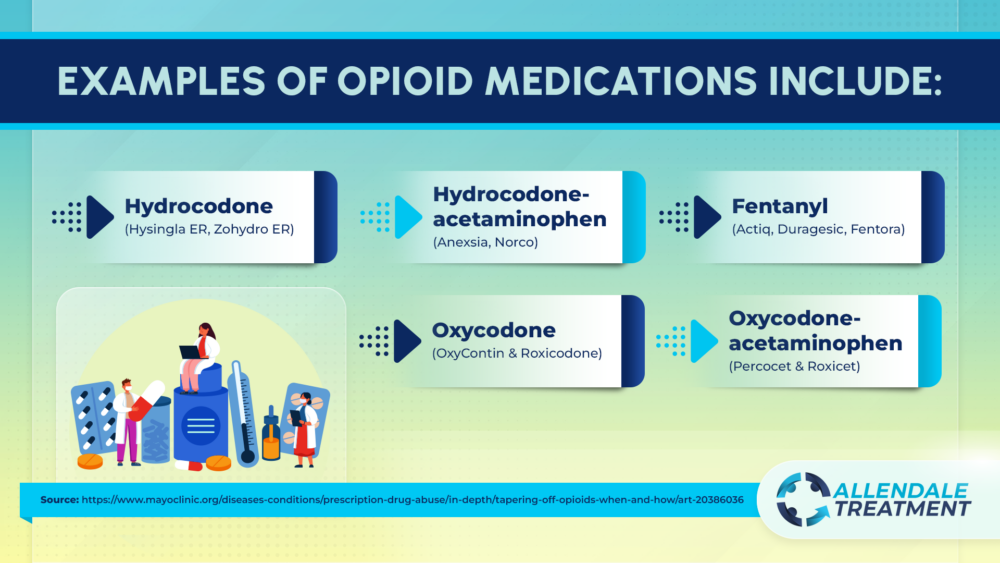Alternatives to Opioids for Pain Management
Alternatives to Opioids for Pain Management
Tens of millions of Americans deal with pain daily whether it’s from surgery, an injury, or chronic back pain. Many of these people have been prescribed opioids by their physician’s as a way to manage and treat their pain.
Updated: 2023
Written by: Allendale Treatment
If you or anyone you know are struggling with addiction, call (833) 338-6946 to speak with a professional.
Unfortunately, this has been a contributing factor to the opioid crisis and the death of 564,000 Americans between 1999 and 2000. To help combat this crisis, medical professionals have been utilizing and advocating for other forms of pain management including non-opioid medications, physical therapy and high-tech treatments.

Not only can these alternative pain management options prevent addiction and overdoses from occurring, but they can also provide pain sufferers with additional benefits and better long-term outcomes.
Alternative Pain Management Options
Approximately 3% to 19% of people who take prescription opioid medications develop an opioid use disorder (OUD). Once they are no longer able to obtain a prescription from their medical provider, they may turn to illegal street drugs such as heroin or fentanyl to cope with their pain which further fuels their addiction.
Christopher M. Jones, acting director of the CDC’s National Center for Injury Prevention and Control spoke about the need for better solutions to pain management during a press conference, “We know that at least one in five people in the country have chronic pain,” says Jones. “It’s one of the most common reasons why people present to their healthcare provider. And the goal here is to advance pain function, quality of life for that patient population, while also reducing misuse, diversion consequences of prescription opioid misuse.”
Fortunately, there are now many non-opioid treatments available for pain, including prescription and over-the-counter medications such as nonsteroidal anti-inflammatory drugs (NSAIDs), acetaminophen, COX-2 inhibitors, tricyclics, serotonin-norepinephrine reuptake inhibitors (SNRIs) and anticonvulsants. These medications can be just as effective in treating pain and have a reduced risk of addiction.
There are also several pain management options available that don’t involve medication that can be used in place of or in combination with medications including:
People with acute or chronic pain who don’t find relief from these treatments are encouraged to ask their doctor about alternative, high-tech methods to reduce their pain including radio waves, electrical signals, spinal cord stimulation and pain pumps which they may benefit from.
Nate Moellering a community outreach coordinator at Allendale Treatment and Fort Wayne Recovery says that it’s important for people to talk to a medical professional before using opioids because he was unaware of the risks when he was first prescribed Percocet to treat injuries he sustained playing football which led to him developing an OUD. “I played football in high school and college and I blew out my shoulder three years in a row and also injured my back and that’s how I got started on opioids,” says Moellering. “I liked the way they made me feel and didn’t know at the time that it would take me several years to overcome my addiction.”

How Opioids Impact Mental Health
In addition to physical symptoms, acute and chronic pain has a big impact on the sufferer’s overall quality of life and mental health. It is estimated that up to 50% of people with chronic pain also have depression. This could lead to the development of an OUD as the sufferer turns to opioids as a method for coping with their physical and mental pain. Unfortunately, this only worsens the problem as one study found that over 100,000 patients prescribed opioids who had not previously been diagnosed with depression – developed it after using the medication for over a month. In another study opioid abuse has been linked to higher rates of other behavioral health issues such as anxiety and bipolar disorders.
Researchers think the link between behavioral health issues and OUDs could be due in part to how opioids cause changes to the brain’s reward and pleasure system as well as hormone levels. They also suggest that opioids are less effective if a person suffers from depression, which can lead to increased use to achieve the desired effect.
Moellering says that it’s important for people struggling with an OUD to seek out a dual diagnosis treatment that targets both the addiction and any underlying mental health issues they are struggling with. “Most people who have an opioid use disorder, are struggling with a common behavioral health issue such as anxiety or depression which further fuels their opioid use,” says Moellering. “That’s why we recommend people receive treatment for both their addiction and any mental health issues they’re facing. This puts them in the best possible position to overcome their addiction.”
Transitioning Off of Opioids
Despite the risks associated with opioid use, they can still be the best option in certain situations such as for short-term pain management due to surgery, a traumatic injury, or in treating cancer-related pain or when other treatments haven’t worked. When a patient is ready to stop using opioids, they should consult with their physician, especially if they’ve taken an opioid medication for more than two weeks. They may experience withdrawal symptoms that can be severe and even life-threatening including:
The patient’s doctor can create a plan for them to safely withdraw and taper off their opioid medication which can take several weeks depending on the type of opioid and the amount they are taking. As they monitor their progress to prevent side effects from occurring, their physician may do the following:
It’s important for people transitioning off of opioids to follow their physician’s instructions to prevent an OUD from occurring. If they feel the need to continue to find ways to deal with their pain, they should contact their physician immediately. People who decide to take matters into their own hands run the risk of developing an OUD or other addictions especially if they seek out other methods to access opioids from or look for alternative ways to manage their pain such as using other illegal substances or consuming alcohol.

If you or anyone you know are struggling with addiction, call (833) 338-6946 to speak with a professional.

